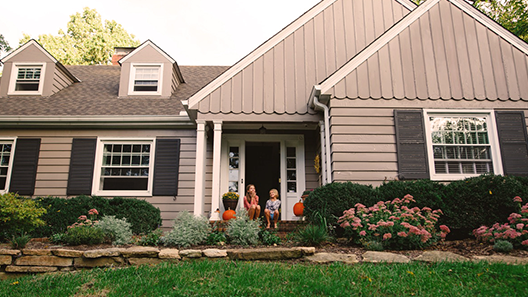Looking to buy a home? Then you’re likely beginning to research mortgages and how they work.

A mortgage can seem complicated, but Newrez is here to help you feel confident in the mortgage process from start to finish. Check out some of the most common mortgage questions below so you’ll be ready and in the know when it’s time to buy a home.
First things first: Understanding what a mortgage is.
A mortgage is a loan for real estate. Just like any loan, you’ll need to apply for it. If you’re accepted, you become what’s known as “approved.” This means that you can borrow a certain amount of money from your lender, which you’ll repay monthly over a set number of years.
However, lenders are going to want assurance that you’ll pay the money back and timely – so approval hinges on several factors:
Income: Since you’re going to be paying your lender monthly, the lender (such as Newrez) will want to make sure you have consistent and adequate income before loaning you a large sum of money. You may need to provide documentation such as your last two years of W-2s, pay stubs, and your last two federal tax returns.
Credit score: This number is important, as it gives us an idea of your financial responsibility and your history of paying back debts. A credit score of 740 or above is excellent and will put you in a better position to get approved. A lower score may mean a higher interest rate.
Debt-to-income ratio: Also known as DTI, this number is the calculation of your total gross monthly debts or payments divided by your total gross monthly income. The lower the number, the more likely you’ll be approved and be eligible for a lower interest rate. If your number is on the higher end, you can lower it by either paying off current debt or increasing your income.
What are the costs included?
Your mortgage payment is the sum of several parts (principal and interest, and possibly taxes and insurance). But there are several other costs and expenditures to consider.
Down payment: This is the amount of money you pay up front. This is generally 20% of the property’s cost. However, there are many loans that allow for less than that. It’s also important to note that a lender like Newrez may make you put down more than 20% if your credit is less than perfect.
Principal: This is the amount of money that we will loan you.
Interest: This is the rate charged to you for borrowing money – nobody’s going to lend you that much money for free. You’ll know the percentage prior to closing, and it may stay the same or fluctuate over the life of your loan, depending on what loan type you get.
Tax: When you own a home, you’ll pay property and school taxes that will go towards your city, school district, road construction, and more.
Insurance: There are a few types of insurance that come with homeowning – one of which is homeowner’s insurance. This insures your home and the belongings in it against damage and/or loss that may occur from theft, fire, etc.
If you don’t have enough money for a 20% down payment, you may have to get Private Mortgage Insurance, or PMI, which Newrez, as your lender would arrange. This insurance protects the lender from financial loss in the event that you default on the loan.
What are the different mortgage types?
Everybody has different mortgage needs – which is why a variety of different loan types are offered. The most common home loans include:
Fixed rate mortgage: This is the most commonly sought loan option. As the name suggests, the rate stays the same throughout the life of your loan. Many borrowers start out with a 30-year fixed, but there are other options such as 25-, 15-, and 10-year options.
Adjustable rate mortgage: Also known as an ARM, this loan gives you a lower, fixed interest rate for the initial 5, 7, or 10 years – and then after, your rate and monthly payment can change annually based on current interest rates.
FHA loan: An FHA loan can help homebuyers who can’t afford a traditional 20% down payment, and allows for a less-than-perfect credit score. With an FHA loan, you can put down as little as 3.5% at closing.
VA loan: This loan is reserved exclusively for veterans, active-duty personnel, reservists, National Guard members and, in some cases, surviving spouses. This loan includes benefits such as no required down payments and the ability to buy with less-than-perfect credit.
There you have it. Now that you have all of this mortgage knowledge, there’s only one thing to do: start saving for that down payment! Reach out to our team of mortgage professionals to get started.
You can also get an idea of what a mortgage payment may look like for you with our mortgage calculators. Stay tuned to our Newrez articles for more mortgage insights and tips.
Ready To Find The Right Mortgage For You?



